'It is a very special hundred for me because I made my debut in Delhi against Australia.'
'When I was batting I just wanted to stay blank and play one ball at a time.'
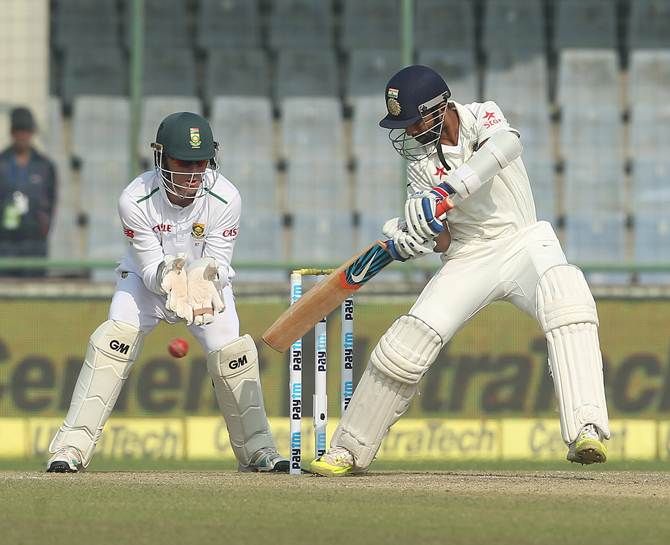
The first batsman to notch a hundred in what is a low-scoring Test series against South Africa, India's Ajinkya Rahane said the key to his success was keeping a blank mind and playing one ball at a time.
"When I was batting I just wanted to stay blank and play one ball at a time. I wanted to build partnerships with the other batsmen. It feels really special that I batted with (Ravichandran) Ashwin while getting my hundred," said Rahane, who scored a superb 127, at the end of the second day’s play in the fourth Test at the Feroz Shah Kotla, in Delhi, on Friday.
"In the first two Test matches I was looking to play shots initially and that's why I got out. I knew I was batting well. I spoke to (India’s batting coach) Sanjay Bangar and Ravibhai (Ravi Shastri) and they said 'You have just got to take your time initially, play one ball at a time. If you are 25 to 30, your instincts will take over'."
The stylish batsman said there was nothing wrong with his technique but he was playing too many shots too early.
"There was nothing wrong technically or mentally. I was just playing shots close to my body. I was slightly hurrying, as I was trying to play my shots straightaway. Here I just wanted to take my own time and play as close to my body as possible, wait for loose balls. Patience was the key over here. Determination and patience helped me in this innings."
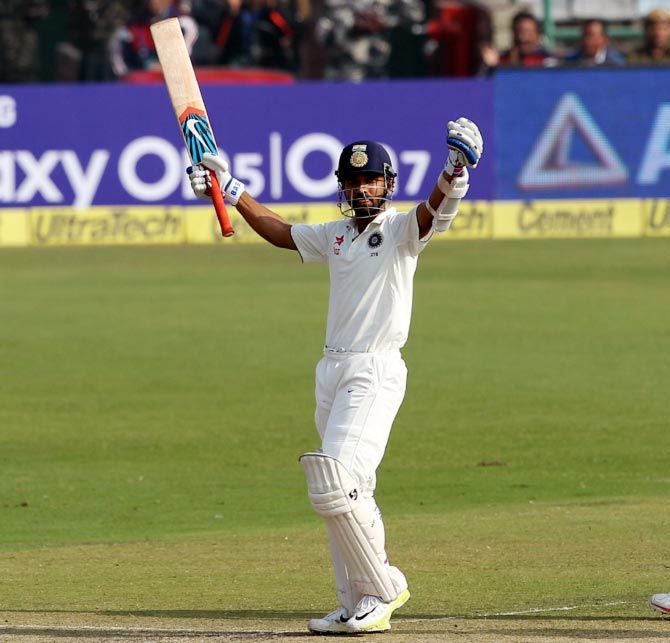
The hundred is special as Rahane made his Test debut at the Kotla.
"It is a very special hundred for me because I made my debut in Delhi against Australia. So I had a few things in my mind. Those memories against Australia (were revisited). I was pretty determined to bat well as I knew that I was batting really well in the series.
"But important was to spend time in the middle and later on look for big innings. So really happy for the hundred, but especially for the partnerships which I got with Ashwin, Virat (Kohli) and (Ravindra) Jadeja. That took us to 330 plus," said the soft-spoken batsman.
Rahane also toed the team line that they did not discuss the pitch conditions.
"We were not thinking about that. In the dressing room, we are not talking about the wickets. It is important for us to win the match and win the series. There is nothing wrong with the wicket. You should give credit to our bowlers, especially Umesh (Yadav) and Ishant (Sharma).
"The three-over each spells from both of them was pretty crucial. Because in the dressing room we never think about how good or bad the wicket is. It's team effort that we played really well."
Rahane had mixed feelings about the Kotla track, which he described as neither too easy nor too difficult for shot-making.
"Shot-making was not easy but once you are set, you decide that you are not going to get out. It was difficult for bowlers to get batsman out. We all saw that when our bowlers bowled (they showed) good discipline and patience.
"For bowlers, it was important to show patience and bowl in right areas, but, as batsman, I feel spending time in the middle, taking my time, playing my normal cricket rather than play attacking shots was important. It was not easy for shot-making but not difficult as well," he observed.
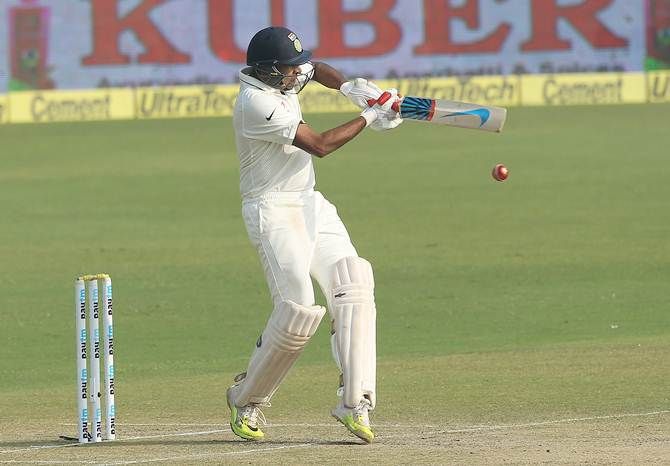
Rahane lauded Ashwin's effort and the contribution from the lower order, which included the 38-run stand between Ashwin and Umesh Yadav for the ninth wicket.
"That's a good sign when you know that your lower-order is batting really well. I think that partnership (Umesh-Ashwin) was crucial. If guys at 8, 9, 10, 11 can contribute, then opposition's morale goes down. Batting with
Ashwin was really important. Communication was just to play normal cricket.
"Ashwin can bat as he has got two Test hundreds. We thought this morning that their bowlers Morne (Morkel) and (Kyle) Abbott will come hard at us. So we took our time initially. Ashwin was timing really well. Even I took my time and then decided to play my shots as well."
There was a sense of déjà vu for Rahane as he said that it felt like being in the same situation when he scored his second Test hundred at Lord's last year.
"When we were 138 for 6 (actually 139 for 6), I was recollecting those memories as even at Lord's, we were 142 for 7 (actually 145-7). It was like same situation. I was just thinking to just communicate with other batsmen and back my instincts.
"When Ashwin came in, I just told him that if the ball is there to be hit, I will go after and back my instincts. I think the response from him was crucial. He was really positive from his end. He said you can bat whatever you like and however you like. So those memories from the Lord's innings came handy here."
He also said that the whole team felt that he was "one innings away from coming back amongst runs".
Asked whether limited-overs’ captain Mahendra Singh Dhoni's comments about his abilities in shorter format had an effect on him, Rahane replied: "Not at all. My job is to play cricket and improve day by day. I never think about what others are saying but I take their opinion and look to improve and move forward."
He said that the strategy was to bat long and deep once India got past 260 as the South Africans gave it all in the first hour.
"I was batting on 89 (overnight) and I knew that they will keep fielders at the boundary and attack Ashwin. Dropping catches happens in cricket and they were giving their 100 percent in the first one hour. They bowled their hearts out.
“Ashwin was pretty good at the other end. I think 300-plus will be a good total on this track. Once we crossed 260, we wanted to bat longer and bat deep. Just take the game away from them."
He said for him every century that helps a team win a Test match is a "special effort".
"If the century helps the team, then it is a special effort irrespective of the conditions – India or abroad. This is my first hundred in India and obviously it is special."
Asked why India are not enforcing the follow-on, he replied it was a decision taken by the captain and they are happy with it.
"It was team management's decision of not enforcing the follow-on. Whatever captain decides, all the 15 members back his decisions. It's a team decision and a good one (at that)."
He has now made a name for himself as a specialist slip catcher and attributes it to the hours of practice which includes hundred catches a day.
"From the start, wherever the captain has told me to field, whether it is silly point, forward short leg, slip or gully, I have always given him a positive response. My mindset is to obey the captain. In Sri Lanka, Virat told me that I will field in the slips. I gave him a positive response.
"Then I told Sridhar (fielding coach) that I want 50 to 100 catches per day so that I can properly fulfill the responsibilities entrusted by team management. I took a lot of catches, prepared well, showed the captain that he can show confidence in me.
"In slip fielding, preparation is very important. You can't concentrate for six hours. One needs to switch on and switch off. Knowing when to concentrate is also important."

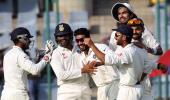





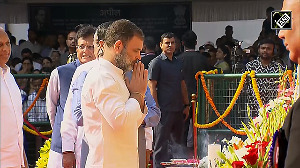



 © 2025
© 2025